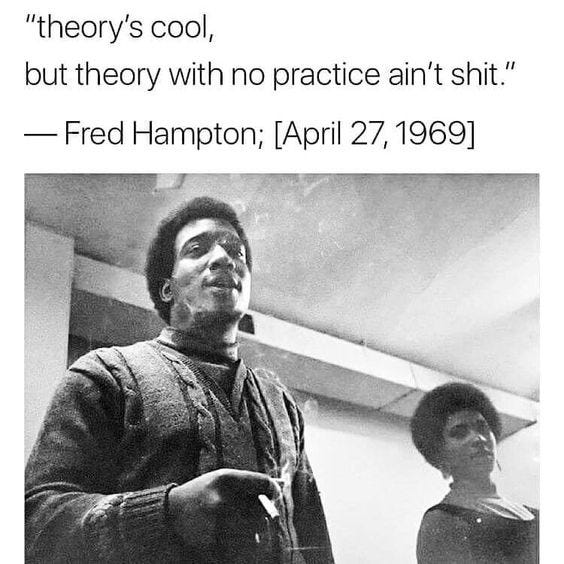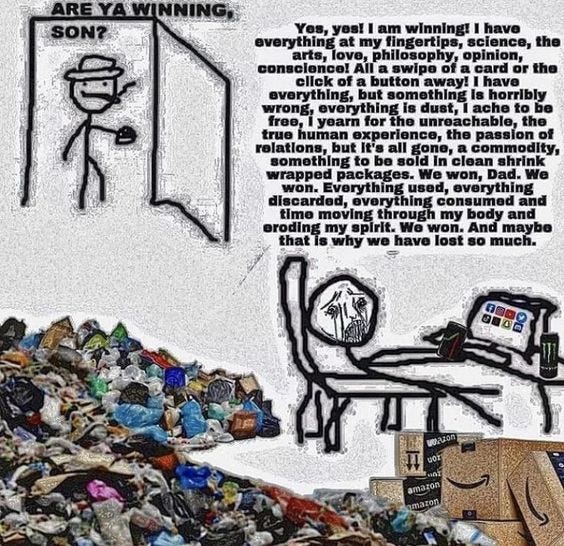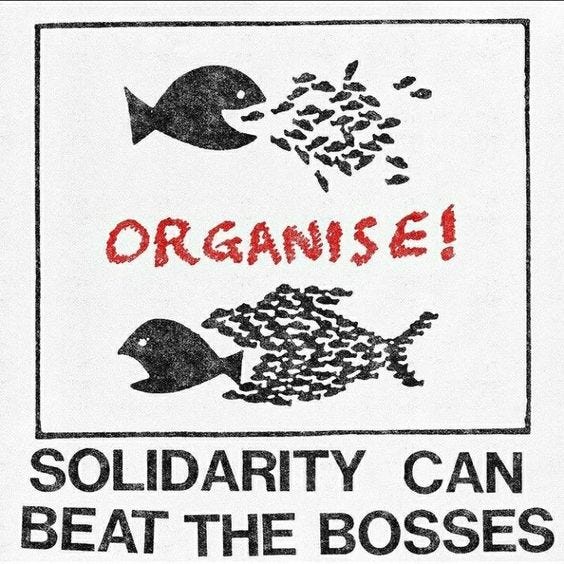Add this to your wellness toolkit
praxis pods 🐸🌸🌀 what they are, why they're so nourishing, how to form one
Something you may not know about me is that professionally I’m a learning designer. In everything that I do, I’m applying principles of how adults learn, because that’s what facilitates change. For more, you can check out my manifesto on adult learning for liberation.
Sooo many of our learning design experiences are absolutely contradictory to what we actually need to shift mindsets, build new skills, practice new ways of being. The typical learning experience employs the banking model, where there’s a sage on the stage dumping info into the learners’ brains. They teach learners what to think, not how to think.
The most important aspect of liberatory learning is creating the space for learners to make meaning on their own and practice in the real world. This includes time for learners to reflect, engage in their own inquiry, determine what learning matters most to them in their context, engage in dialogue with peers, practice, fail, iterate, experiment, and continue forward.

The same pattern is often true in learning spaces, political/social movement spaces, and spiritual spaces - there’s an overemphasis on the “enlightenment” or awakening through sharing new knowledge, academia trains us to become skillful analysts, and then we become woefully unprepared, scared, and clunky in moving through the stages of action and accountability in the learning cycle.

This brings me to one of my favorite and impactful practices in my wellness toolkit: learning pods 🐸🤓
Learning pods have been one of the most impactful practices that has supported my holistic health (mental, emotional, relational, etc.) along with my ability to track, codify, and celebrate progress towards my intentions and goals. Because I’m not just deep in the complexity of my own learning process, I’m learning from how my peers are also wrestling with new learning and applying it to their context. The important thing is that this is all happening in a trusting and supportive environment.
What is a praxis pod?
A praxis pod is a self-facilitated group of 3-5 people meeting weekly/regularly to discuss learning, practice, challenges in the context of shared vision for liberation and aligned personal goals
Why form a praxis pod?
In the age of the internet, you can find learning for free on essentially any topic your heart desires. You can check out any book from the library, find podcasts, courses, etc. We are in no shortage of content from which to learn.
We’re drowning in content but stuck in figuring out how to apply it to our lives.
There are also many options for finding an expert to more closely observe, guide, and direct your learning. This can come in the form of coaching, mentorship, therapy and healing services. These also serve an important purpose, but sometimes aren’t the right solution to enable the transformation you’re seeking and integration (practice) of the learning you’re hoping to implement.
Sometimes you just need to DO the thing. You know what you need to do, you just haven’t found a rhythm of implementing it in your real life. And especially in the context of liberation work, engaging in praxis in loving relationship with others is what makes the action and accountability part of the learning cycle more easeful.
This is where a learning pod might be helpful.
You might just need some peers who are also trying to do the thing that you’re doing!! To learn from practice and applying whatever you’re learning to the real world! To navigate complexity and systems of oppression with others who share your vision for liberation! To learn from your baddie friends who are in their own context experimenting, iterating, learning and growing!
And if you care about liberation and systems change - learning in collective is absolutely necessary. Don’t underestimate the power of learning and change in small groups.
How to form a nourishing praxis pod 💦🐸🌿🌎📚
Steps for Forming a Praxis Pod
Figure out the thing you want to learn and practice (the learning agenda)
Find the people to form a pod (start with people you aleady know, like, trust and go on a hunt to find others who would be aligned)
Meet weekly & discuss
Practice outside of the sessions - do the homework, try things out, have conversaitons
Have a digital chat to stay in touch outside of meeting times
What is the domain in your life in which you think peer support would be most fruitful? Whether you’re on an entrepreneurship journey, conducting a job search, unpacking identity, entering a new season in life, deepening in your spirituality, prioritizing mind-body-spirit wellbeing, evolving your creative practice, or wanting to channel efforts towards community - there are an infinite number of contexts and applications for a learning pod. Choose the purpose that most resonates with you in this season of life.
What will be your learning agenda? This is like your syllabus or framework that you’d move through each week with your pod. This could be like a book club where you read assigned chapters and discuss, you could go through an existing weekly program like the artist’s way, or creating your own syllabus for the topics/themes that matter to your pod. (hit reply to this email and feel free to ask me questions on this - I’d love to help you figure out a learning agenda that would work for your pod!!)
Then consider - who’s already in your network who’s walking a similar path? Who’s in a similar season of life? Who do you admire and look up to? Test the idea out with them and form a pod with people who share mutual values and intentions, but diverse enough that it’s interesting to learn from each other.
My biggest advice in forming learning pods is:
1. the shared purpose for meeting is highly relevant to each person in the group
2. each pod member is equally committed to the space
Here’s what’s also been true about the successful praxis pods I’ve been a part of:
They meet regularly (same time every week is my favorite)
Everyone is excited about the learning agenda
The group is small enough to share the floor
They foster relational trust-building through active listening, non-judgment, compassion, and affirmations.
They practice vulnerability and tell stories, sharing what’s resonating and what’s not, what’s working and what’s not, experiments and lessons learned.
They collaborate to solve problems or challenges that arise
They balance accountability and celebration
They do the homework
They have fun! There is joy, play, love, connection woven throughout
Drop a comment or reply to this email with any questions, I’d be happy to help you in forming your own nourishing praxis pod.
Happy community learning!










